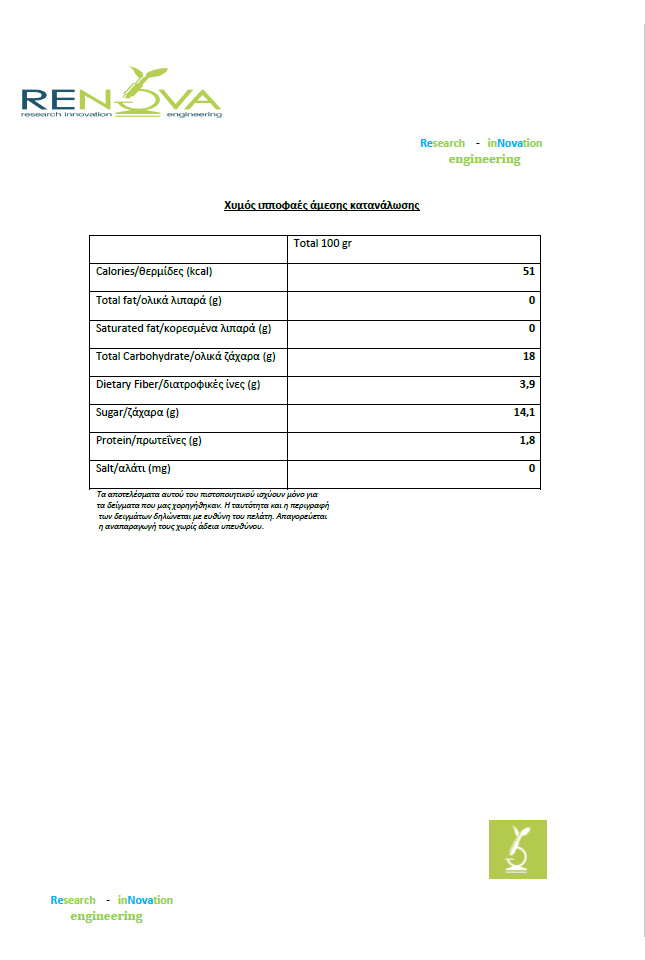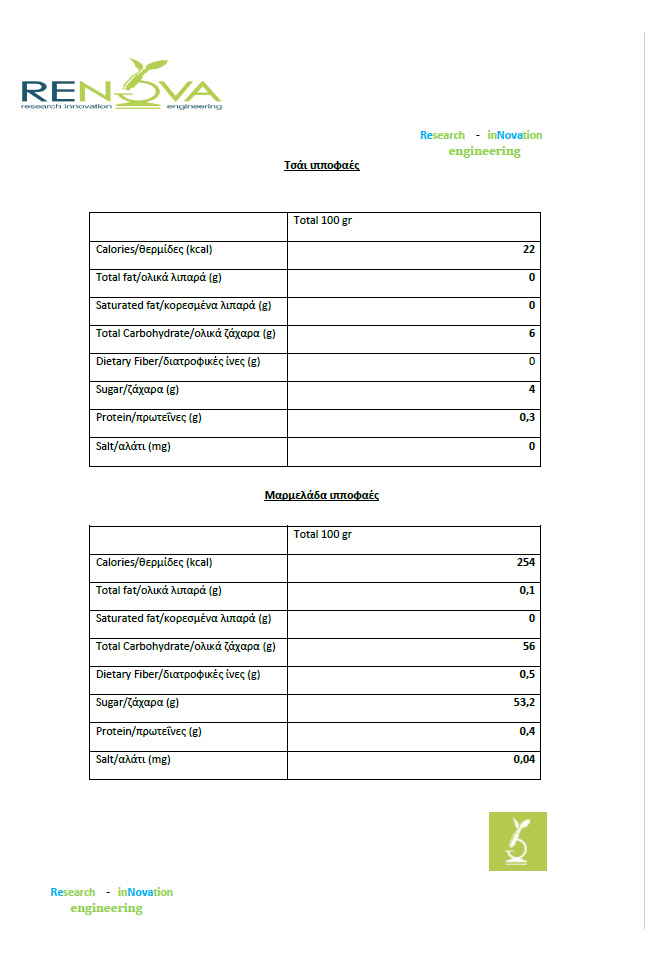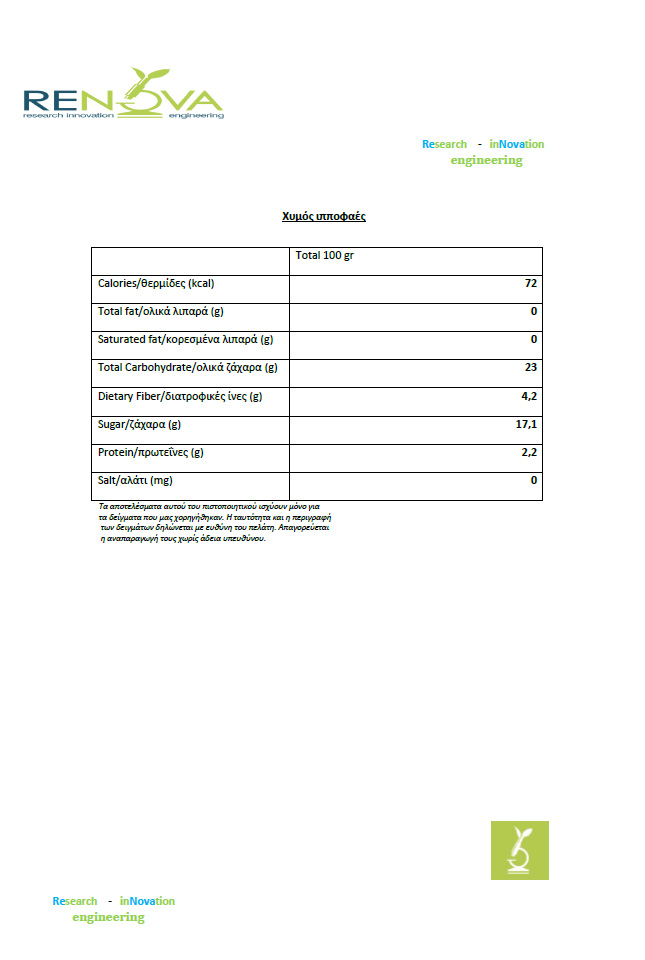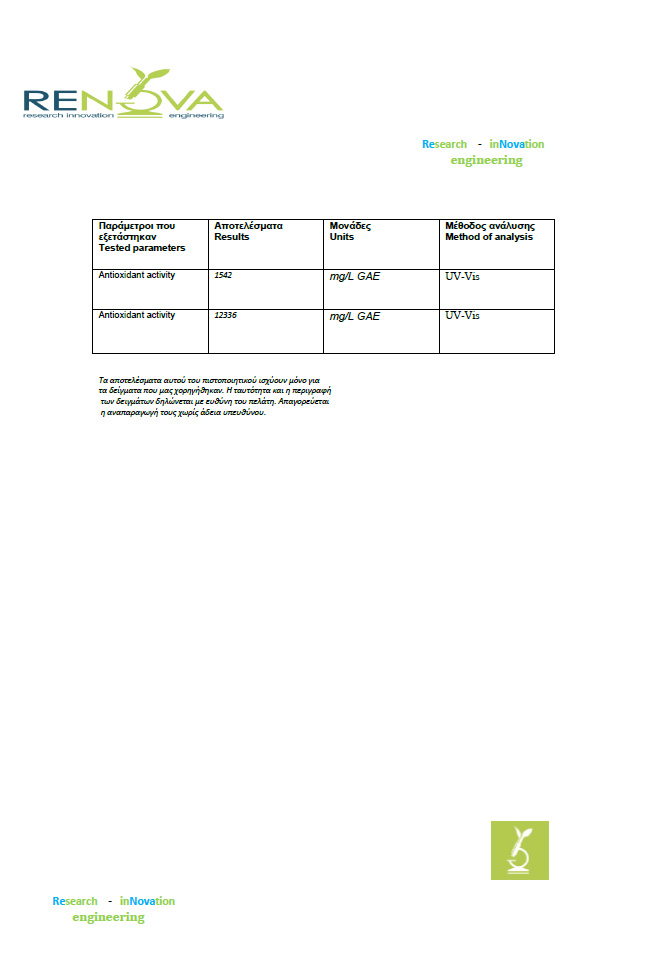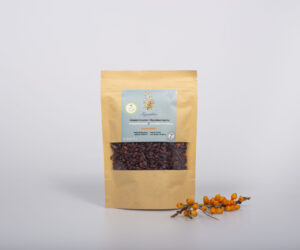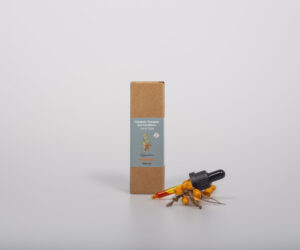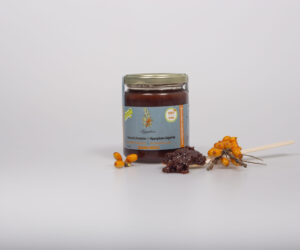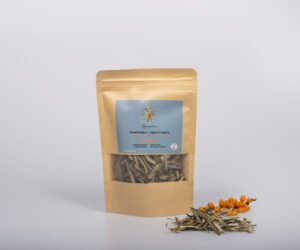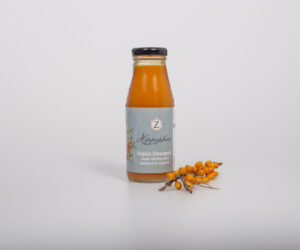Sea Buckthorn: What is its nutritional value?
You will often hear that sea buckthorn is a superfood, and not by chance. Its nutritional value is very high, due to the more than 190 nutrients it contains.
The nutritional composition of sea buckthorn is different depending on the part that has been cultivated, the altitude as well as the extraction process used. The 100gr. Dried fruits provide about 275 calories and contain carbohydrates, proteins and fat.
Its rich composition in polyunsaturated fatty acids is an element that makes sea buckthorn a special fruit, as it is a valuable source of omega 3, 6 and 7 fatty acids (linoleic acid, alpha-linoleic acid, palmitoleic acid, palmitic acid).
According to studies, sea buckthorn fruit is an excellent source of fiber. It contains vitamins E and C (400-600mg / 100g dry weight), while the fruits contain B-complex vitamins, such as vitamin B1, B2, B3, B5, B6, biotin and folic acid.
It is a source of β-sitosterol and flavonoids, such as quercetin, as well as a source of campferol. In the fruit of sea buckthorn, some substances bearing the name of the plant have been found, such as Hippophaeosides A-C and Hippophins C-F, which so far have been found only in sea buckthorn and their action and health benefits are not yet known.
Sea buckthorn is a valuable source of procyanides, such as catechin, epigallocatechin and galocatechin, substances that have become known and are found in greater quantities in green tea. In addition, it contains carotenoids, such as zeaxanthin, lutein and β-carotene.
What are its effects on health?
Due to its wide composition in nutrients, it was considered as a fruit with strong antioxidant, anti-inflammatory, antimicrobial, analgesic and anti-cancer properties.
Sea buckthorn and cardiovascular health
According to some studies, taking sea buckthorn can have significant cardiovascular benefits, which is attributed to the flavonoids it contains. Studies have shown that taking sea buckthorn reduces platelet aggregation in healthy individuals, thus preventing atherosclerosis, while it has been shown to improve cardiovascular function in people with ischemic heart disease. Some studies have shown that it has a positive effect on blood lipids even in people with hyperlipidemia. Specifically, taking sea buckthorn reduced the levels of total and “bad” LDL cholesterol, reduced the oxidation of LDL cholesterol, while it seemed to have a positive effect on the levels of triglycerides and HDL cholesterol. Not all studies, however, have shown similarly positive results.
Healing of wounds, burns and ulcers
Sea buckthorn is a rich source of omega 6 and 7 fatty acids, which are elements of the skin and are believed to help heal wounds and regenerate skin from burns.
According to some studies, taking sea buckthorn helps reduce the intensity of the symptoms of atopic dermatitis (eczema). Other studies have shown that topical use of sea buckthorn oil protects the skin against UV radiation, while helping to heal burns faster, reduce swelling and relieve pain.
Gastroprotection and sea buckthorn
Studies in mice have shown that taking sea buckthorn extract helps protect the gastrointestinal tract, reduce recurrences and reflux, and especially protect and prevent ulcers. Its action is due to the reduction of stomach acidity, its anti-inflammatory properties, as well as its ability to reduce gastric emptying time.
Taking sea buckthorn can also reduce the chances of infecting the gastrointestinal tract, mainly through its antimicrobial activity and inhibition of certain pathogenic microorganisms, such as certain Gram-bacteria.
Antidiabetic properties of sea buckthorn
As sea buckthorn is a source of carbohydrates, its intake increases serum glucose levels. However. Due to its fiber content, many studies have shown that it delays the rise in blood glucose levels and reduces insulin requirements, thus improving the glycemic response and glycemic control even in people with diabetes.
Sea buckthorn has anti-cancer properties
Studies in experimental animals have shown that taking juice with sea buckthorn can reduce the incidence and growth of tumors. In addition, some preliminary studies have shown that sea buckthorn oil protects cells and DNA from the toxicity of chemotherapy and radiation, mainly due to the flavonoids it contains. However, larger studies are pending to confirm the anti-cancer properties of sea buckthorn.
Antioxidant protection and immune boosting
As a rich source of vitamin C and vitamin E, it offers strong antioxidant protection. Taking sea buckthorn leaf extract appeared to have immunomodulatory properties. In particular, it inhibits the action of free radicals and increases the production of molecules that enhance the action of the immune system (IL-2, γ-interferon). However, taking it did not appear to prevent the onset of a cold or reduce the duration of cold symptoms.
Reduction of dry eye
Dry eye is significantly affected by the intake of linoleic and γ-linolenic acid as well as omega 3 fatty acids in general. Studies have shown that due to its rich composition in fatty acids, antioxidants, carotenoids and vitamin E, sea buckthorn oil can reduce eye inflammation and improve dry eyes, especially in cold seasons.
Are there any contraindications or side effects?
Sea buckthorn is safe and non-toxic. It can be used safely for up to 90 days by adults, however, it is recommended not to be used by children under 12 years.
Systematic intake of sea buckthorn can cause a mild discoloration of the urine (bright yellow to red) or a change in their odor, but it is not something to worry about health.
Sea buckthorn supplements should be avoided by people taking antihypertensive drugs, anticoagulants or antiplatelet drugs, antineoplastic drugs or those on immunosuppression. To date, there are no studies that support taking it during pregnancy or breastfeeding, so supplementation should be avoided during these periods.
Caution is advised in those taking cholesterol or diabetes medications, as it may have a cumulative effect. People who are going to have surgery, it is recommended to stop taking it at least 2 weeks before the surgery.
What is the recommended daily dose?
In the form of dry extract of fruits and leaves, the usual dose is between 500 to 2000mg per day. As far as oil is concerned the dose may be higher and range between 2000 to 5000mg daily.
Product Development and Quality Control by

